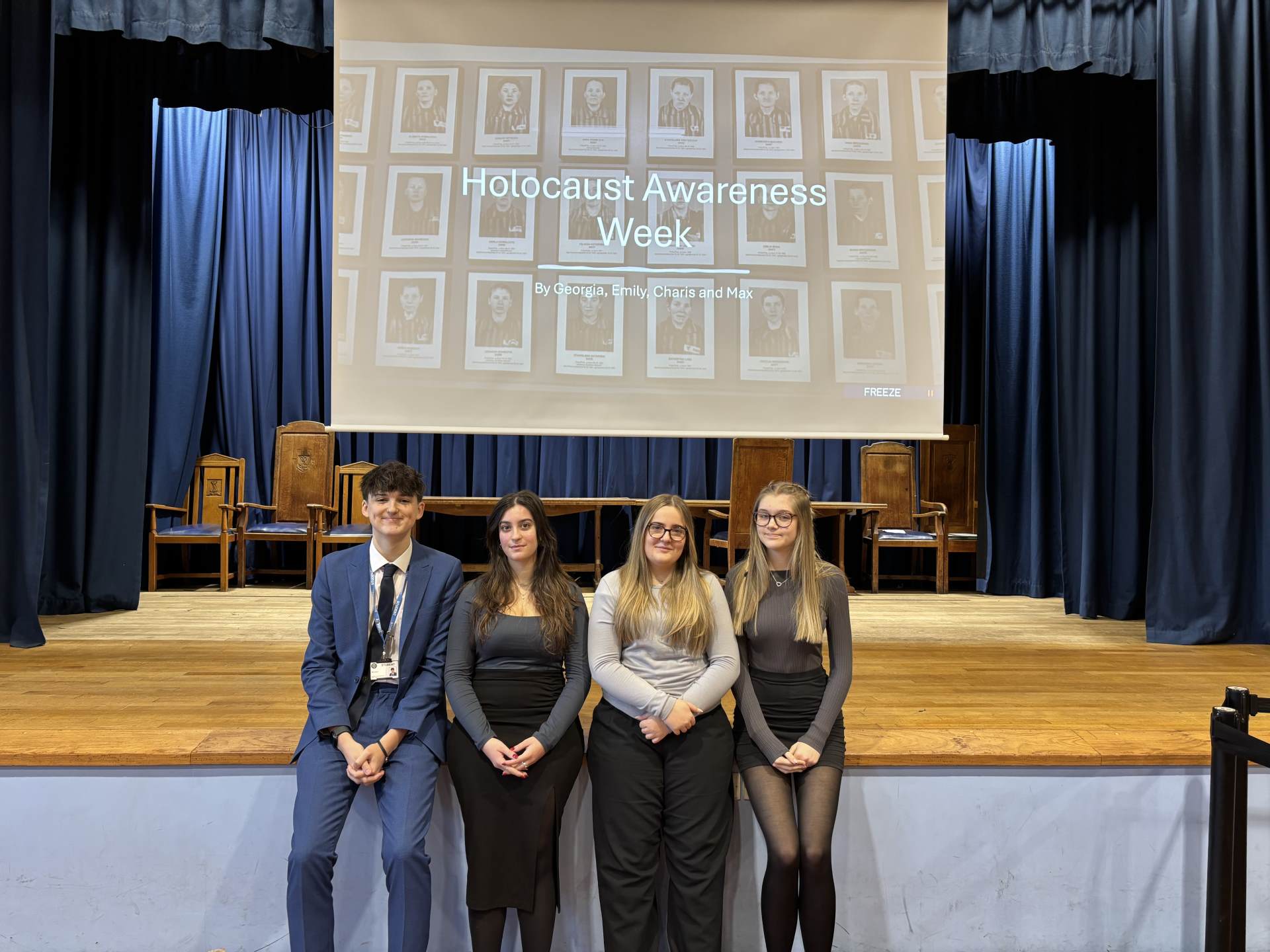Sixth Form Students Deliver Powerful Assembly on Holocaust Memorial Day After Visit to Auschwitz
This week, six of our sixth form students delivered an emotional and thought-provoking assembly to mark Holocaust Memorial Day. The students had recently visited Auschwitz, the infamous Nazi concentration and extermination camp, and used their experience to educate the whole school about the atrocities of the Holocaust and the importance of remembering its victims. Their reflections, insights, and personal stories shared during the assembly deeply resonated with students and staff alike, reminding us of the power of education in ensuring such horrors are never forgotten.
The assembly was an opportunity for the students to not only share their journey but also to reflect on what they had learned and felt during their visit to Auschwitz. They spoke passionately about the importance of keeping the memory of the Holocaust alive, and how the experience had changed their perspectives on history and the world today. One of the key messages they conveyed was how grateful they felt for the life they live today. “It made us grateful for the opportunity. It put everything into perspective,” one student said. “We get to walk through and leave,” another added, underscoring the stark contrast between their visit and the prisoners’ suffering.
The students spoke of several poignant moments from their visit that had left a lasting impact on them. For many, the most emotional experience came from seeing the gas chambers and the room containing photos and clothes of children who perished in the Holocaust. These artifacts were haunting reminders of the lives lost, and the students shared how they felt a deep sense of sadness and sympathy. The surreal feeling of seeing the camp firsthand, after learning about it in their GCSE history classes, was also a significant moment. “It changed our perspective. It was surreal,” the students reflected, explaining how the experience made the historical events come to life in a way that books or images couldn’t.
One story that particularly resonated with the group was shared by their tour guide. As the group stood watching the sunset at Auschwitz, the guide explained that prisoners would have witnessed the same sunset, but under vastly different circumstances. “This made us all extremely reflective and emotional,” the students said. The group also reflected on the vastness of the area and the wide-reaching impact of the Holocaust, emphasising how the map shown during the tour helped them understand the scale of the atrocities. The students also discussed how young people today, far removed from the events of the Holocaust, can still relate to and remember its history. Their suggestions included having more open discussions, listening to survivors’ stories, and engaging in education that keeps the memory of the victims alive. “Family, discussions, education,” highlighting the role of personal and community engagement in preserving this important history.
They emphasised that educating people about the victims—not just the perpetrators—is crucial for ensuring the events are remembered accurately and respectfully. “Ensure the facts are direct, impactful, and not hidden,” the students suggested. “Focus on the victims, not necessarily the perpetrators.”
In their assembly, the students also highlighted the vital role younger generations play in preserving the stories of Holocaust survivors. “Talking, telling people’s stories, making it a conversation that is more easily accessible,” the students said, highlighting how conversations about the Holocaust should continue and be normalised in today’s society. The students called on everyone to remember that the Holocaust was not just a historical event, but a tragedy that took the lives of real people. The students’ reflections and messages were a poignant reminder of the significance of Holocaust Memorial Day. Through their first-hand experiences and heartfelt stories, they reminded us all that history should never be forgotten. As one student put it, “Raise awareness and begin discussions that can extend outside of school.” Their hope is that by continuing to educate and engage with this painful but important part of history, we can ensure that future generations understand the importance of remembrance, tolerance, and standing up against injustice.
“When you think about the Holocaust, do not think of it as just a piece of history. Remember that each person had a life—they were not just numbers.”
Mrs Briggs
Trust Lead Professional for PSHE at The Mercian Trust



